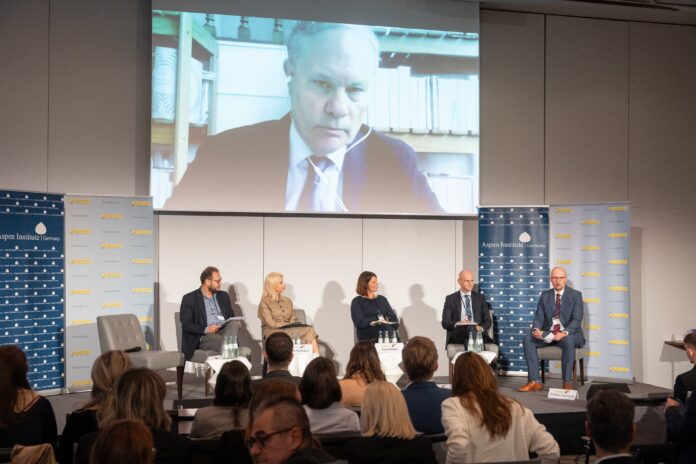“The Berlin Process has stood the test of time, and its mission is more vibrant than ever. All Western Balkan countries are committed to EU integration. Although they have not yet joined the EU, they have made significant strides since the 2014 Berlin Conference. Despite occasional alternatives that have emerged and attempted to compete with this intergovernmental process, none have been as successful or enduring as the Berlin Process,” said Minister of European Affairs Maida Gorčević during the panel “EU Integration and the Berlin Process” at the Civil Society Forum and Think Tank Organizations (CSF) held in Berlin.
She highlighted that ten years into the process, Montenegro remains a leader in accession negotiations. This year, two Intergovernmental Conferences with the EU were held, a positive report on the rule of law was received, and it is expected that four negotiation chapters will be provisionally closed by the end of the year.
“What has been our focus in recent months, and will remain so in the coming years, is the Growth Plan. Specifically, steps toward a common regional market, the EU single market, and taking advantage of opportunities such as joining SEPA, which Montenegro is expected to do by the end of this year,” Gorčević explained.
Commenting on recommendations for enhancing cooperation in various areas of the Berlin Process presented at the Forum, Minister Gorčević noted that experience has shown us that unbalanced reforms lead to negative consequences. One of the reasons for changing the EU accession methodology is the recognition that economic or other reforms should not come at the expense of the rule of law.
“I believe that Montenegro has a proactive, visible, and resilient NGO sector, particularly in terms of their activities related to the European integration process, more than any other country in the region. The Ministry of European Affairs strives to include civil society organizations in the negotiation structure and reform planning process, as well as to support their activities through participation in panel discussions and round tables,” Gorčević said.
She added that she sees particular value in encouraging the localization of the Berlin Process, as it is the optimal way to address the specific needs and priorities of the Western Balkan countries. In that regard, she reminded that most of those countries have unique situations affecting their progress in the accession process. Gorčević explained that state and local authorities and NGOs more likely to commit to its mission, when they feel they have a stake in the Berlin Process, they are.


